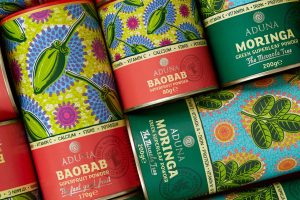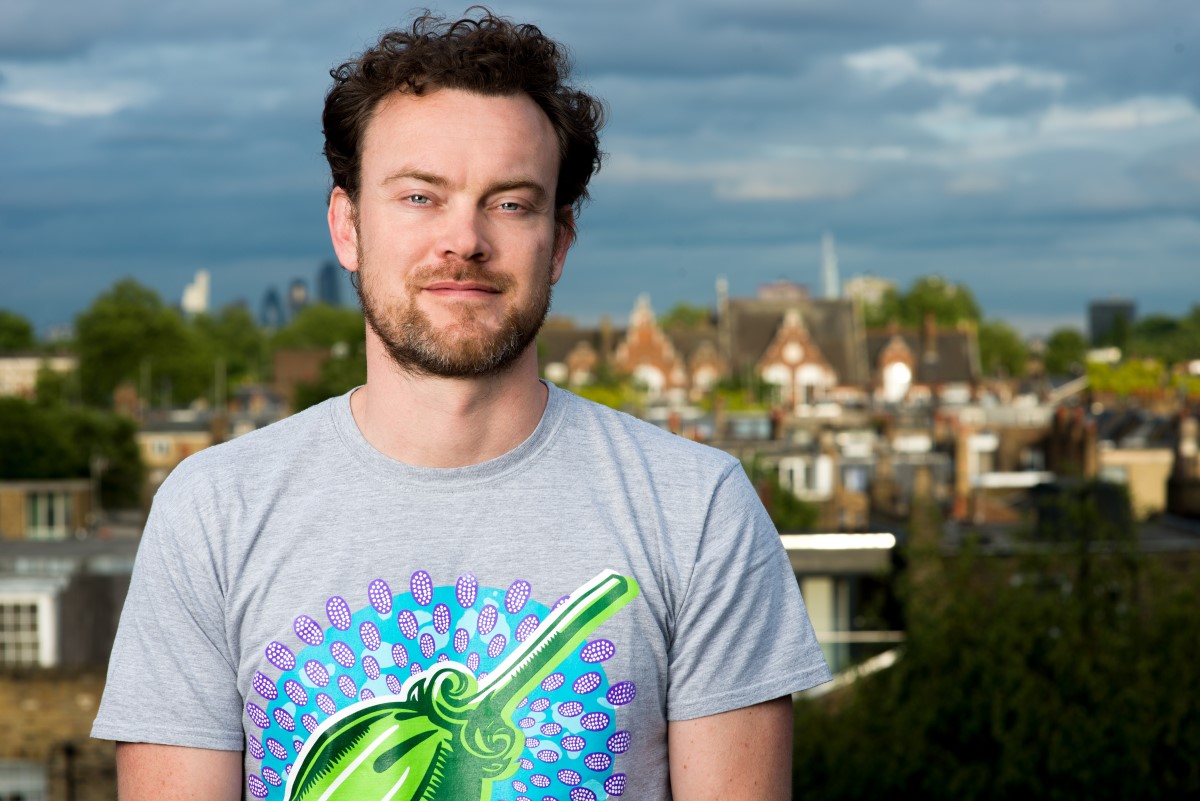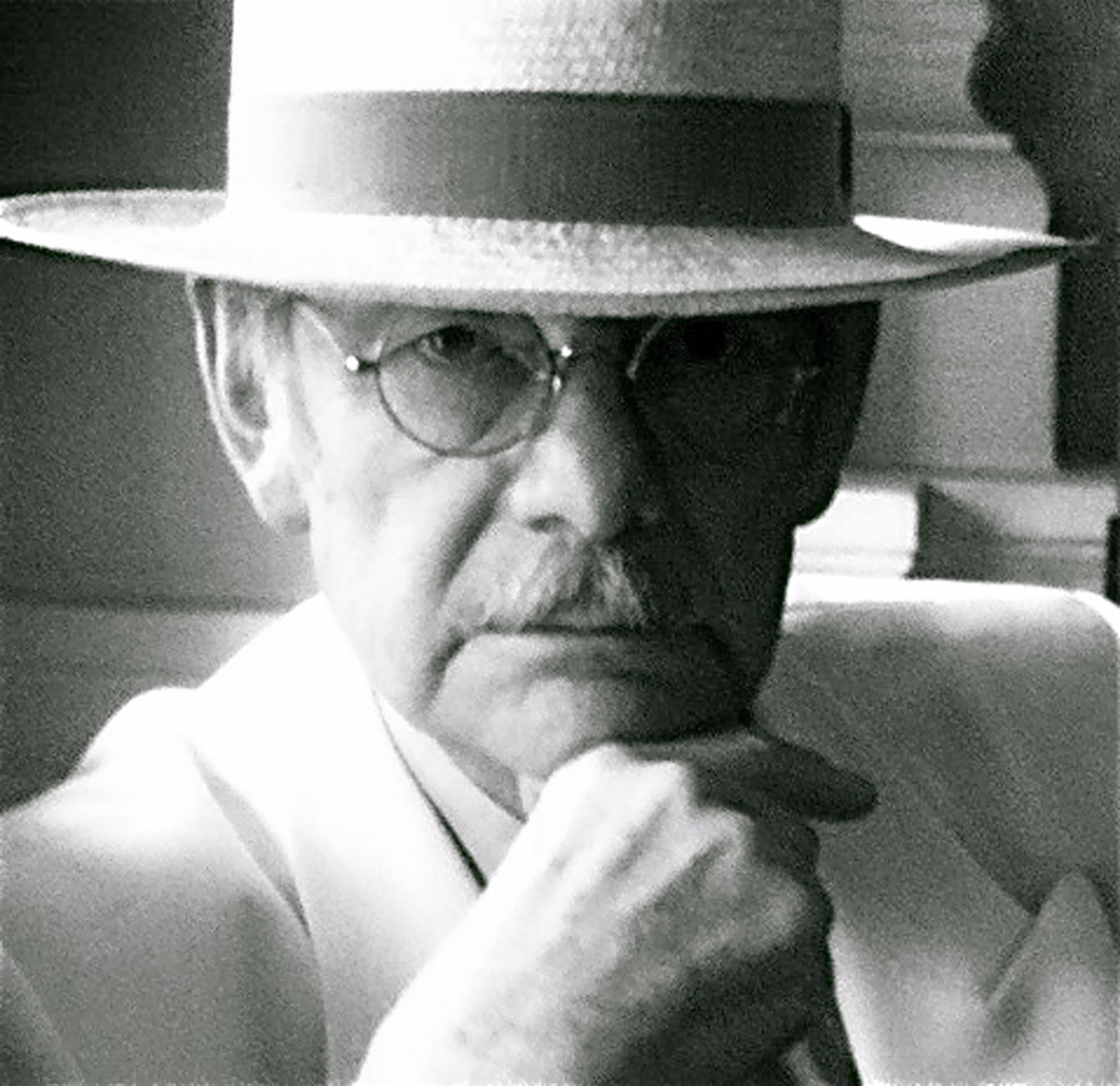Andrew Hunt was born and raised in Primrose Hill. “Back then, Primrose Hill was quite a rough area and housing was cheap. The high street was occupied by bookies, fish n’ chip shops and newsagents. Lemonia was a pub with blacked-out windows. There were regular fights at The Pembroke, and at one point The Landsdowne was a brothel.” Andrew recalls. “Since then, the area’s changed a lot, now even the celebrities can’t afford living here. Despite this, it still retains a village community feel and as long as I’m living in London I wouldn’t want to live anywhere else”.
Andrew is co-founder of Aduna the award-winning Africa-inspired health and beauty brand and social business. After two years working from his flat in Chalcot Square with a team of ten, two weeks ago they finally flew the nest. “It was very cosy to say the least, but it helped keep costs down to a minimum”. He’s clearly passionate about Aduna and happy about the awards, but he is most proud of creating sustainable income and employment for thousands of women in poverty-stricken rural Africa, by harvesting and processing baobab fruit, a nutrient-dense, antioxidant-rich superfood. Aduna processes the fruit, brands it, packs it, and distributes it to food stores all over the world. At first glance, Andrew’s life appears to look like one success story after another, although he explains that things haven’t always been that way.
“ Ten or twelve years ago I was working in advertising, as an account director, and my clients were big global brands. I was good at it and by twenty-three, I was already dealing with CEOs of multinationals, but I’d started to feel disconnected from myself. I lost all sense of purpose. I became depressed and on Sunday nights I’d started to feel anxious about going back to work. As I’d come from a creative background, I started to question myself about what I was doing and how had I ended up a ‘suit’ and not a creative? Why was I investing all of my energy promoting products I didn’t care about like frozen ready meals and nasal decongestants? So, I decided to quit and I landed a ‘dream job’ scriptwriting for a Sky One Drama about football called “Dream Team”. It should have been my ultimate job; I love writing and I love football, but it became a nightmare and I developed writer’s block.
 I had gone from being a senior account manager dealing with general managers of large companies, to being alone at home with only my laptop trying to write an hour of drama without anyone else around. So I started questioning my creativity and myself again all over again and at the age of twenty five I had a complete meltdown. My love life collapsed and some crazy stuff happened. I was on a downward spiral. I ended up unemployed, single and diagnosed with clinical depression. It felt as if my mind had turned in on itself and was reprocessing my entire history in a negative light, twenty four hours a day.
I had gone from being a senior account manager dealing with general managers of large companies, to being alone at home with only my laptop trying to write an hour of drama without anyone else around. So I started questioning my creativity and myself again all over again and at the age of twenty five I had a complete meltdown. My love life collapsed and some crazy stuff happened. I was on a downward spiral. I ended up unemployed, single and diagnosed with clinical depression. It felt as if my mind had turned in on itself and was reprocessing my entire history in a negative light, twenty four hours a day.
The word “depression” is often misused. Clinical depression is a serious medical condition, it’s an illness and yet there’s a real stigma attached to it, people don’t take it seriously. I tried antidepressants, psychotherapy, acupuncture and in my desperation, even visited a faith healer in Brighton.
I remember at my lowest ebb sitting in my basement flat in Fitzroy Road looking around the room thinking: the table is useful because you can put things on it; the Lichtenstein poster is useful because you can enjoy looking at it, and the sofa is useful because you can sit on it. I am the only thing in this room that has no use, purpose or value and I began to search Google for ways to kill myself.
“My breakthrough came with a phone call from a family friend Angus offering me the opportunity to volunteer in Gambia for six weeks on an agricultural project. Initially I wasn’t interested in going simply because when you suffer from depression you aren’t interested in anything, let alone going to some God-forsaken outpost in Africa! At the time I also had a lot of ill-conceived and negative views about Africa. My family however, had other plans and already bought my ticket, so I went to Gambia. I stayed there for almost four years.
“Angus is a British farmer and a social entrepreneur who had set up horticultural projects with a thousand small-scale producers of fruit and vegetables. When I arrived, it wasn’t doing too well. The situation was that all local producers of fruit and vegetables grew the same thing each year and harvested at the same time. This flooded the market. The rest of the year hotels and restaurants had to import produce from Europe because they couldn’t source it locally.
I started from scratch and changed the system and we really made it work. By the second year the farmers that had previously produced 50 kilos now produced a ton. And at the right quality. I paid them in cash and I could see the profound impact this additional income had on their lives. It just felt really good.
I ended up having the best time of my life, living in a shed with no water or electricity in Africa. I remember after just three weeks of arriving I was walking to work through the dusty streets listening to my all-time favourite tune, “Unfinished Sympathy” by Massive Attack and I suddenly realised: “I’m not depressed any more”.
“Four things had made the difference. The first is very simple: that the sun shines every day. The second is the warmth and friendliness of the people in Africa. The third is the social structure in Africa: you are never alone, but always with your extended family. What got me most inspired, however, was the fourth thing: realising that I could make a difference to other people through entrepreneurship.”
 “After four years in Gambia, I returned to London. That was hard, but the project was going well. In 2008 we won three international awards; and better yet, my depression never came back. In Africa I had found myself living right in the heart of vibrancy, vitality and positivity. Aduna means ‘life’ or ‘world’ in Wolof. Aduna, the brand, is my way of sharing with the world what Africa gave me: life.”
“After four years in Gambia, I returned to London. That was hard, but the project was going well. In 2008 we won three international awards; and better yet, my depression never came back. In Africa I had found myself living right in the heart of vibrancy, vitality and positivity. Aduna means ‘life’ or ‘world’ in Wolof. Aduna, the brand, is my way of sharing with the world what Africa gave me: life.”
Some further facts: Aduna now works with eleven communities, meaning that about 81,100 women who harvest the baobab fruit have a secure income for their families. More than half a ton of baobab and moringa powder is distributed every month. Next year Aduna’s value chain hopes to add a further 4,000 women in Ghana. It’s all about adding value to the produce, and creating demand worldwide. Aduna has just reached the final of Richard Branson’s Pitch to Rich contest, with their Make Baobab Famous campaign. Aduna’s products are available in most health food shops and department stores, like Liberty and Selfridges.
Find more information at www.aduna.com
As told to Lars Christiansen (http://onthehill.pics)




